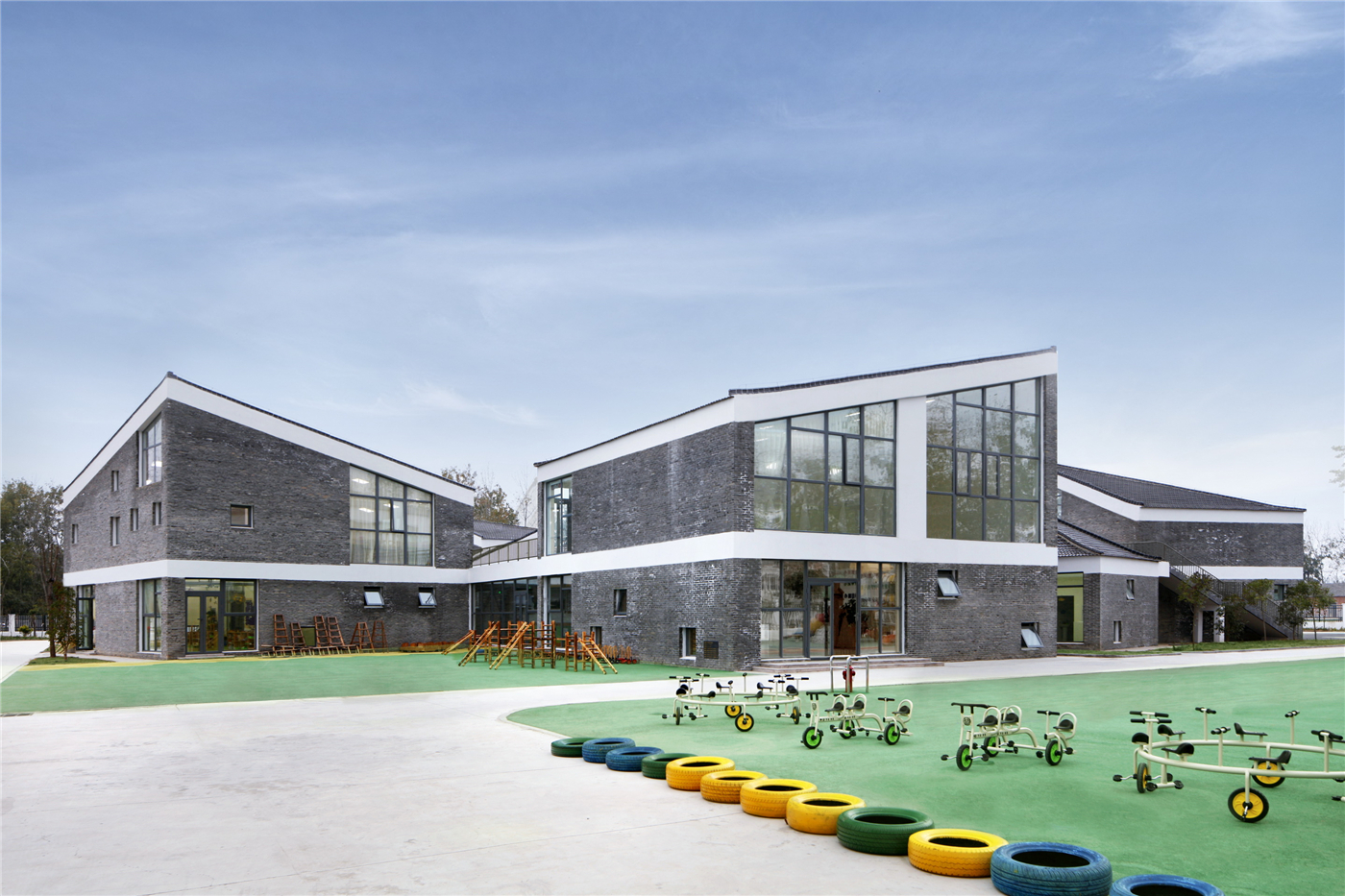
设计单位 Crossboundaries
项目地址 江苏阜宁
建筑面积 2815.4 平方米
竣工时间 2018年8月
近年来,江苏省率先开始在全省推动高质量的学前教育发展,包括教育资源一度欠缺的乡村地区。2015年,阜宁县政府委托Crossboundaries为其下辖的北沙村设计一所中心幼儿园,以缓解当地幼教资源不足的问题。
On the initiative of the local government facing shortage of preschool education in rural area, Crossboundaries was commissioned in 2015 to design a kindergarten for the Beisha Village in Fu'ning County, Jiangsu, the first province in China that has accelerated the development of high-quality preschool education throughout urban and rural areas.
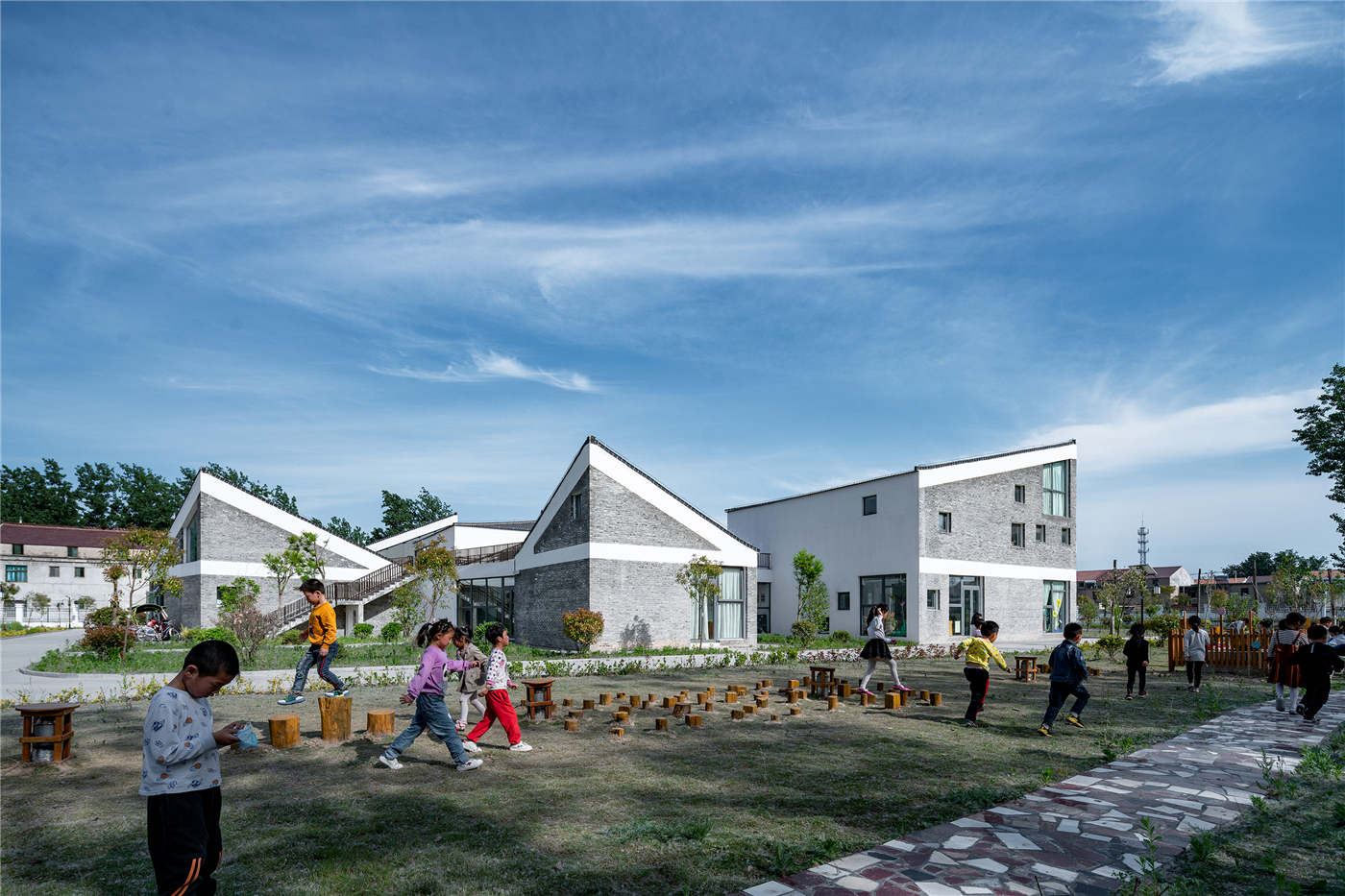
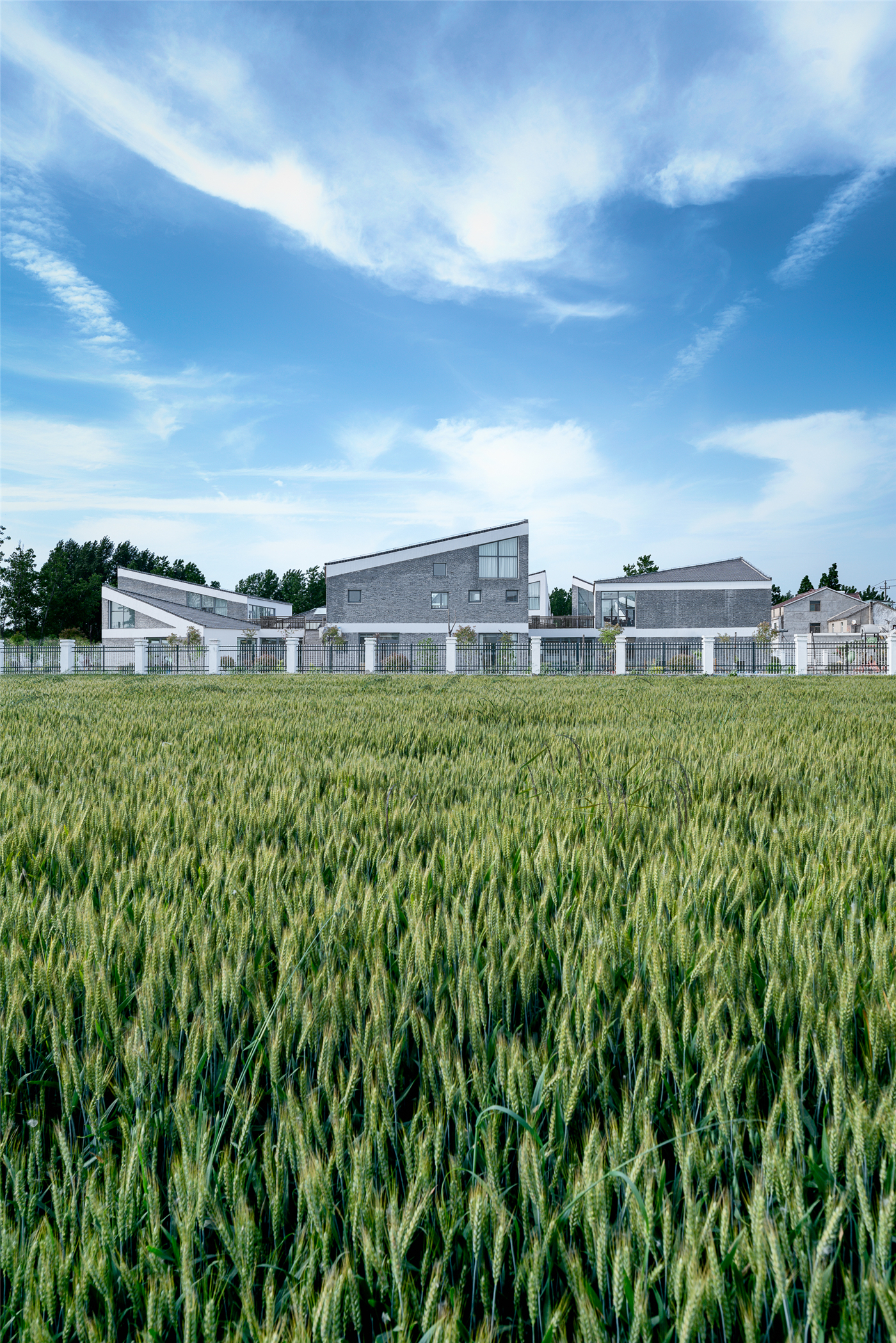
阜宁县背倚苏北平原,面临苏中水网,自古崇文重教、尊道厚德,素有“江淮乐地”之称。如今,四时变化的农事仍是当地人主要的生产、生活内容之一。广阔的沃野托举起其上星罗棋布的房屋和其他人工建造物。
Fu' ning County has been well-known for its tradition of advocating education, culture and morality. Located in-between the North plain and the central water network in Jiangsu Province, the county’s seasonal dynamics of agricultural produce still takes up most of space and dominates as an activity and as a way of making a living, putting dwellings and all built environment in the background.
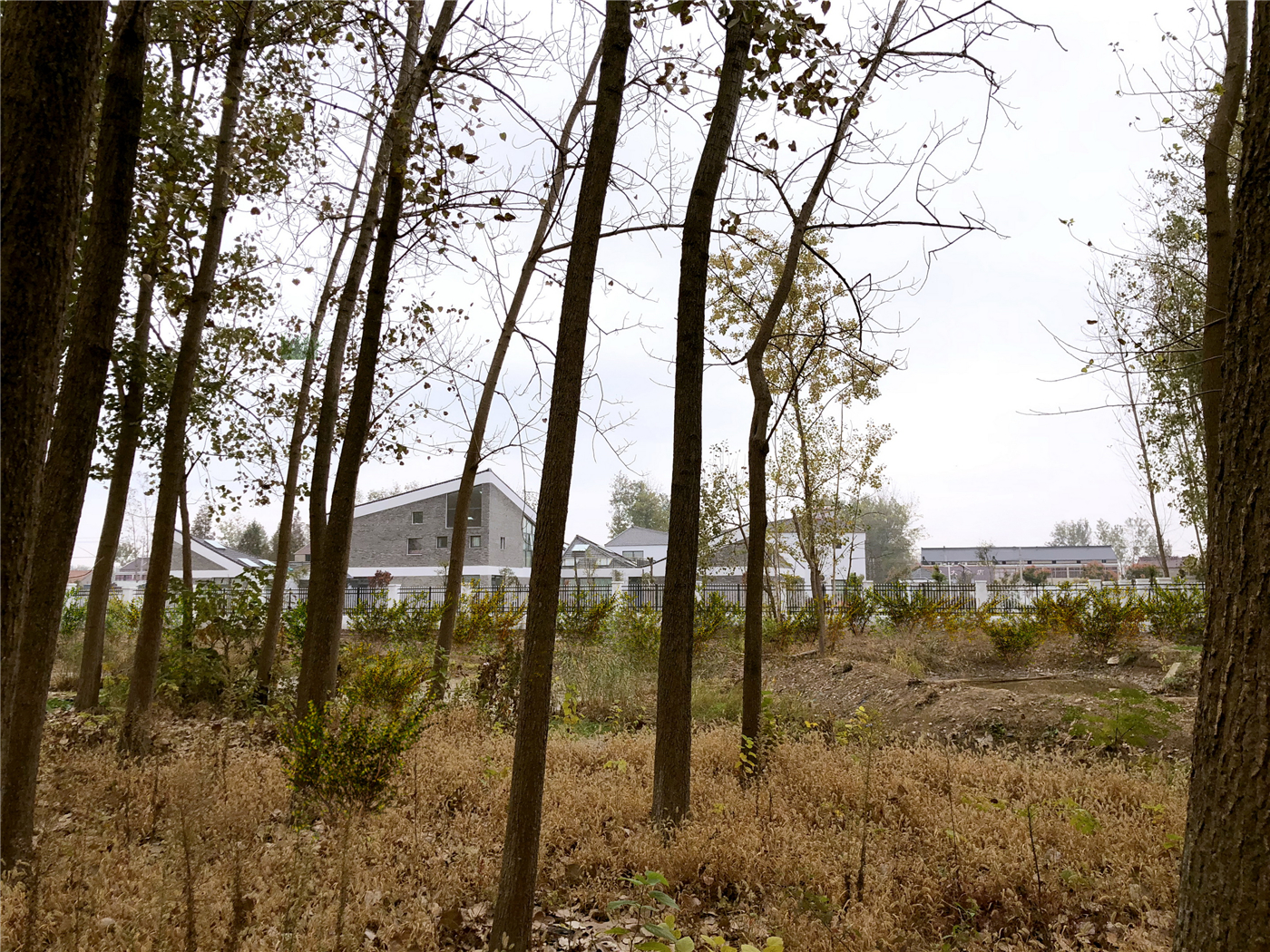

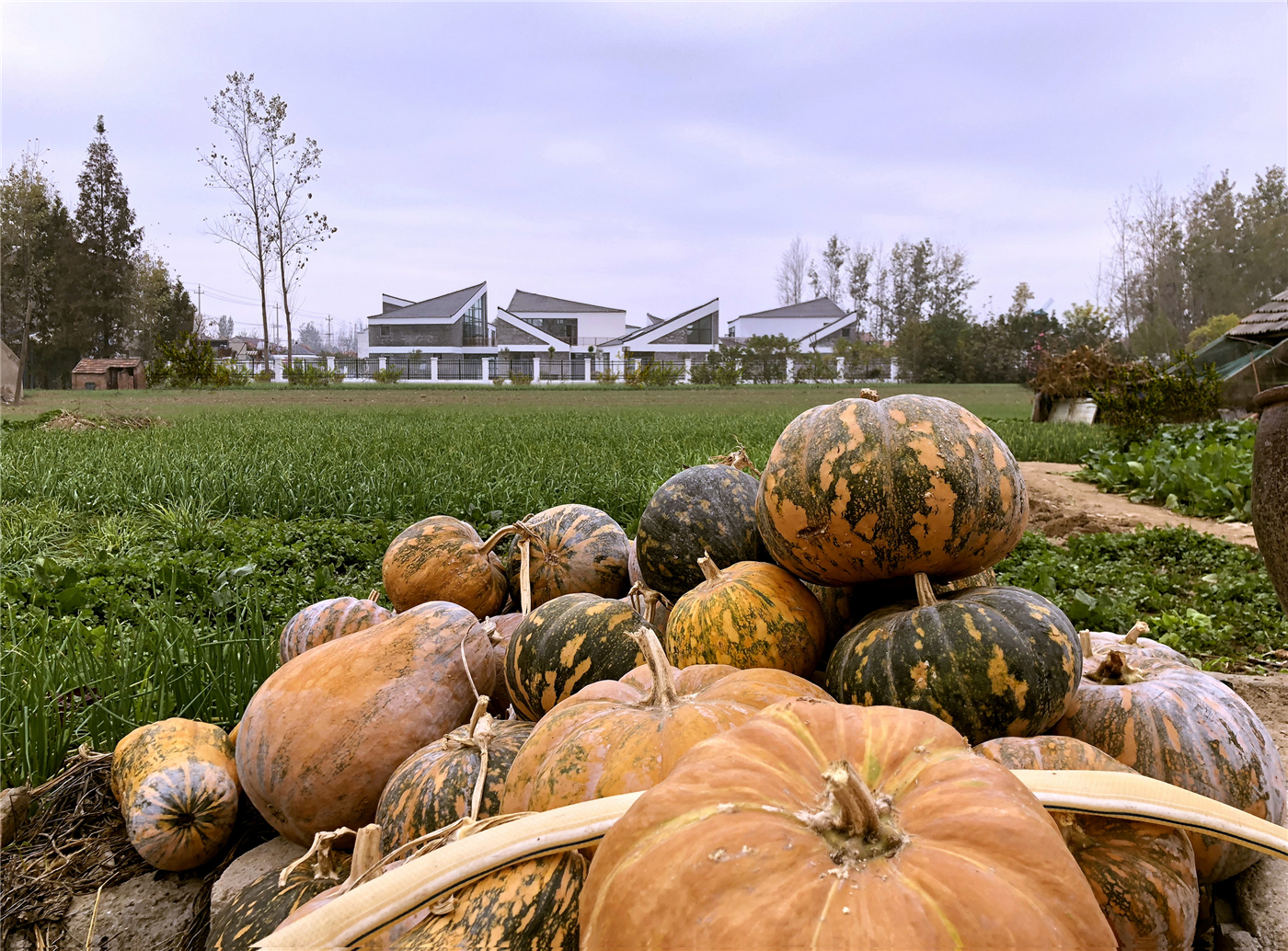
前往北沙的一路上,窗外是一望无际的丰饶平原,薄雾笼罩的地平线偶尔被成排的树木和房屋中断。这就是江苏农村大体的面貌:平坦的地形、无边的风景,正如其上的天空一样广袤无垠。一旦步入村中,一马平川的感觉立时就被消解。随处可见的高大树木将天空与田野切割成如拼贴画般的风景,通过这些天然“柱廊”走向村中房舍时,会有桃源探秘般的新奇感。村庄周边的林木,同那些坡顶砖墙的农舍搭配起来,是那么和谐。
Approaching to Beisha, you would be greeted by the endless fertile plain, its horizon deluded by the mist and just occasionally interrupted by the linearly arranged trees and houses. This is how most of rural Jiangsu is: flat, boundless landscape, as infinite as the skies above it. Once you arrive in the village, the feeling of overwhelming flatness somewhat disintegrates, the skies and soil become just a background collage, sliced in pieces by the tall trees that now dominate the scenery. Approaching the buildings through this natural colonnade feels like a discovery, a special framework that works well with the small, 2-3 stories houses with pitched roofs and brick facades.
如此景致,就成为Crossboundaries设计的北沙幼儿园生长、扎根的微观环境。
And it is exactly this setting, the zoomed-in rural landscape of the Jiangsu flatland that the kindergarten designed by Crossboundaries grew from and ultimately belong to.
“迷你村庄”
本次设计的关键是对尺度的把控。我们设计的组团式建筑,用若干“小屋式”结构分解了幼儿园所需的总建筑体量,并以一片多功能的户外活动场将每栋“小屋”集结在一起。这种室内外密切衔接、高度混合的空间关系,不仅呼应了乡村的原生肌理,对儿童早期教育而言更是十分重要的场所环境。正如“中国现代幼教之父”陈鹤琴所言:“大自然、大社会都是活教材。”儿童需要在与自然和社会的直接接触中,亲身观察中获取经验和知识。而空间的设计者要为孩子们营造这种环境,创造这些机会。
Appropriate scale of the project was a crucial starting point of this design and led us in creating a building cluster for Beisha, with required building volume broken down to house-like pieces, integrated by the central multifunctional open space. This integration of the outdoor and indoor is crucial to the early education environment and innate to the rural context.
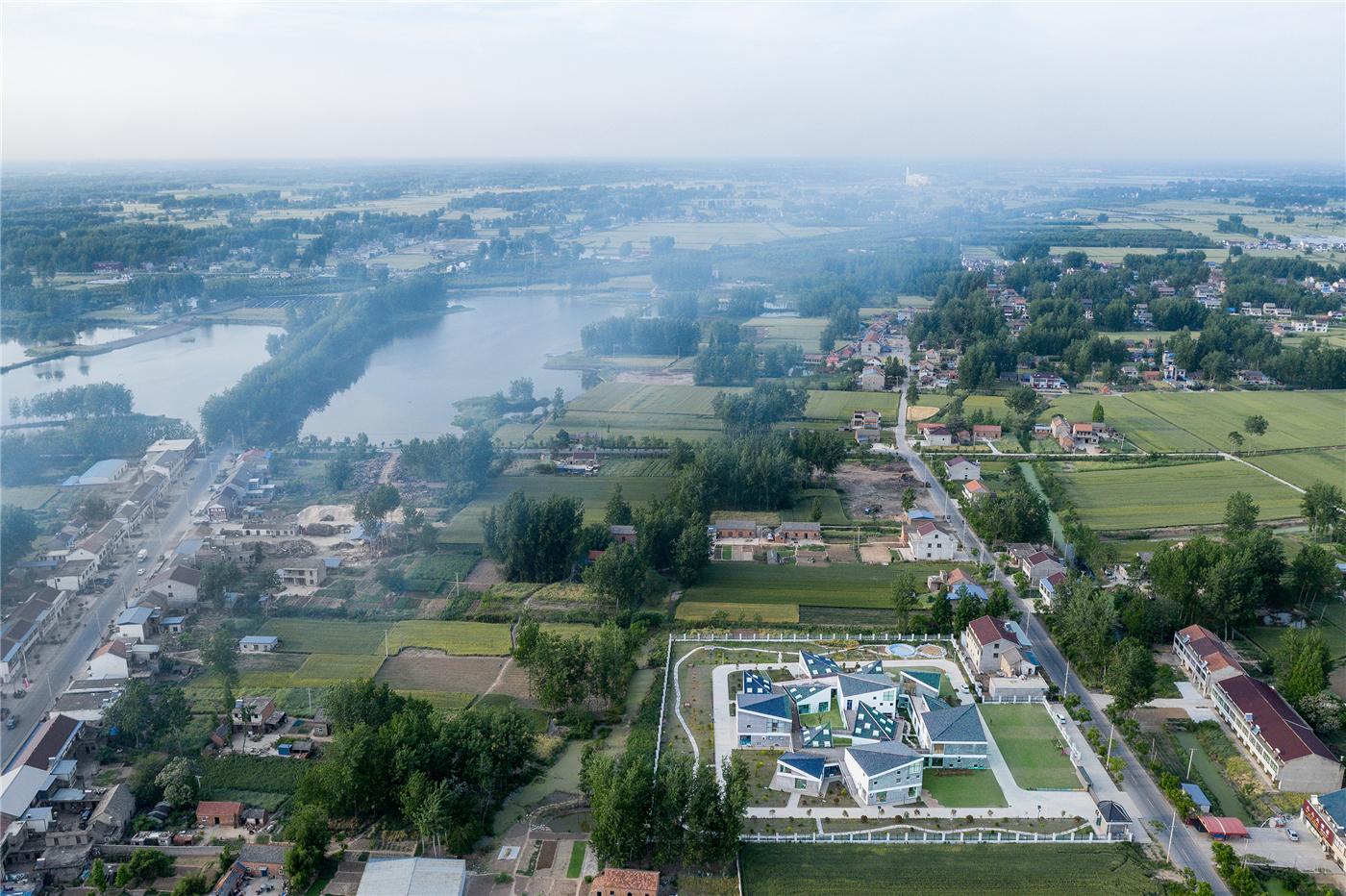
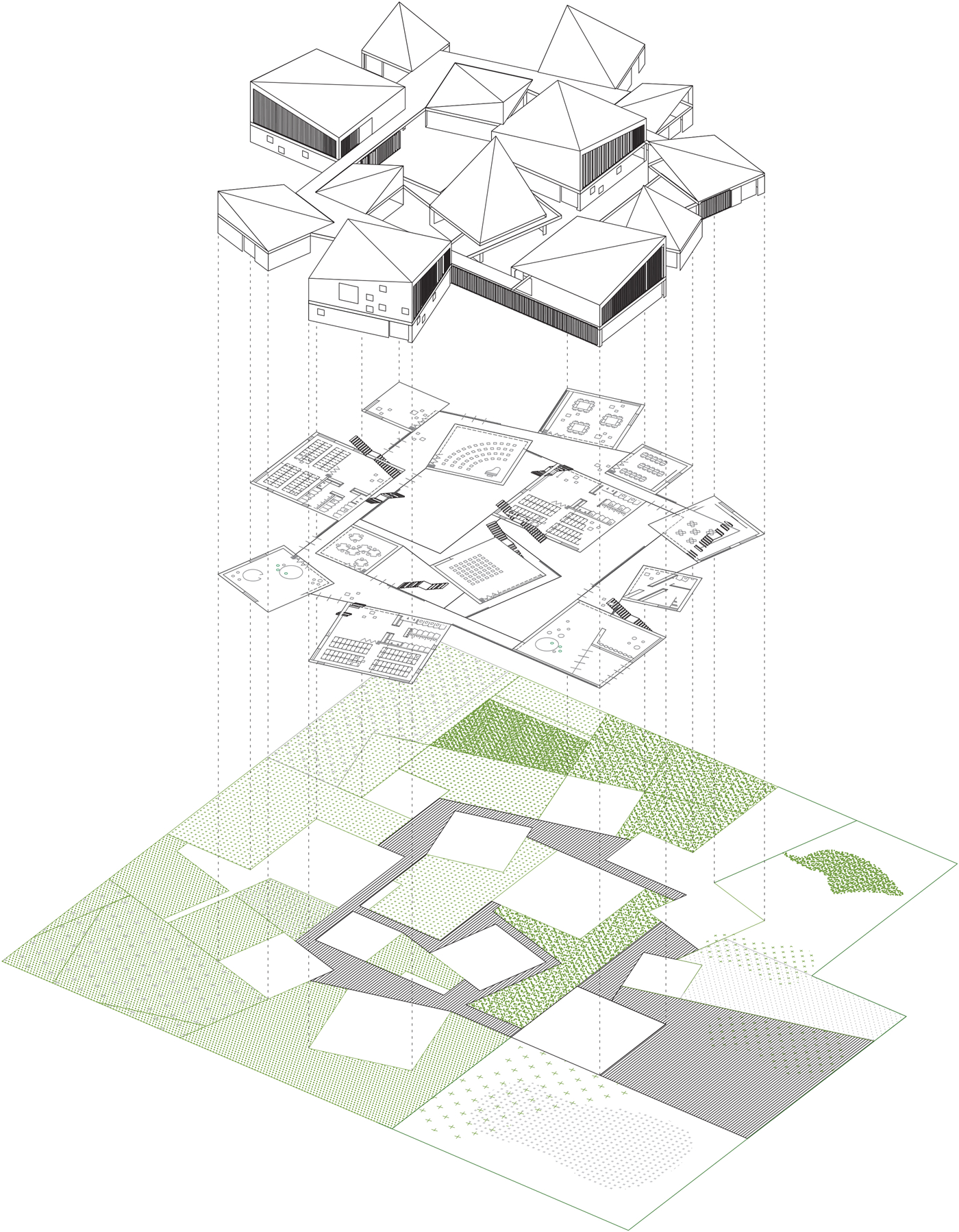
这座“小屋式”幼儿园更像缩小版的村庄,亲切的尺度带给孩子们熟悉的感觉。富有趣味的空间关系又带来新奇感,鼓励孩子好奇探索。来到幼儿园,他们或许会首先注意到中央的主活动场,随后,当他们漫步到“小屋”之间,就会发现房前屋后到处都是小小的神秘乐园,可以在这自由自在地学知识或捉迷藏,就像在村庄里一样。
This Beisha kindergarten functions as a smaller, slightly modified version of village, of which the scale gives the children a sense of familiarity and the interesting building relationships introduce novelty and encourage curiosity. Entering into the gate, children would first discover the main central space and the overall “settlement” surrounded by the trees and then, as they meander in between the “houses” they discover small, secret places tucked away from the main square, perfect for outdoor learning activities and playing Hide-and-Seek, just like what they always do in the villages.

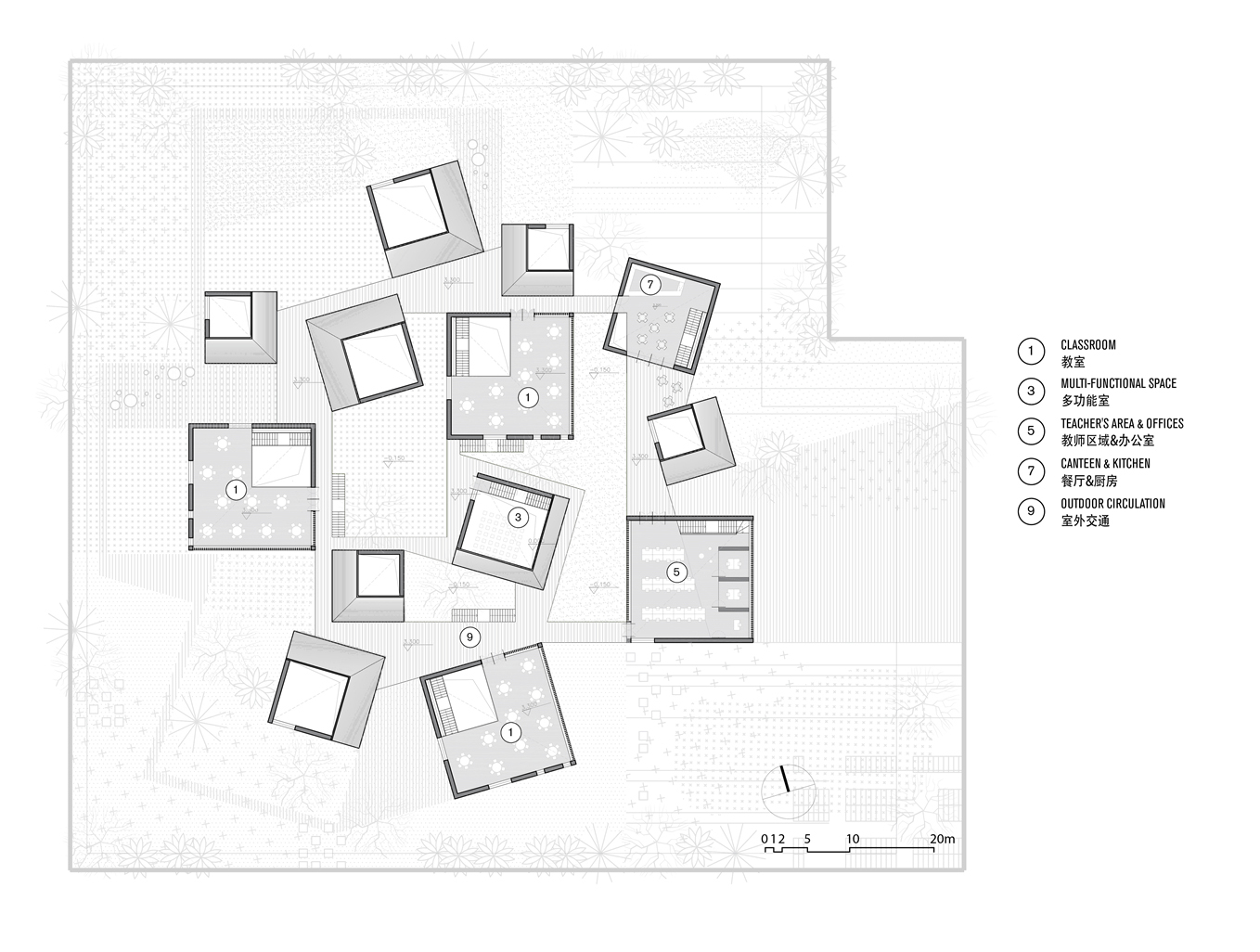


在附近村镇考察时,我们也曾见到很多典型的“教学楼式”幼儿园——隔绝环境、局限视野的大体量立方体,以及高度重复的单调立面,将一种相对孤立的“都市逻辑”植入了乡村既有的空间语境,像个外来的闯入者,而不是令孩子们感到熟悉、自在和温暖的“第二家园”。当地众多留守儿童的父母同当今全国各地的乡村青壮年一样,利用闲农时间季节性地外出务工,错过了自己孩子成长的大部分时光。所以对于这些孩子而言,幼儿园确实就是他们的第二个家。
In contrast, a typical school form, a courtyard enclosed by the prismatic volumes and repetitive façade that blocks off the surrounding and limits the view, with its protective, city logic would be a foreign object in this setting, an intruder in existing context, a symbol of inserted institutional architecture, rather than a place where the children would feel familiar and free, and identify it as their second home. And second home is exactly what the kindergarten for many of these children is, in quite literal sense considering that many young parents of rural area seasonally migrate to big cities for work and miss out on big periods of their children growing up.
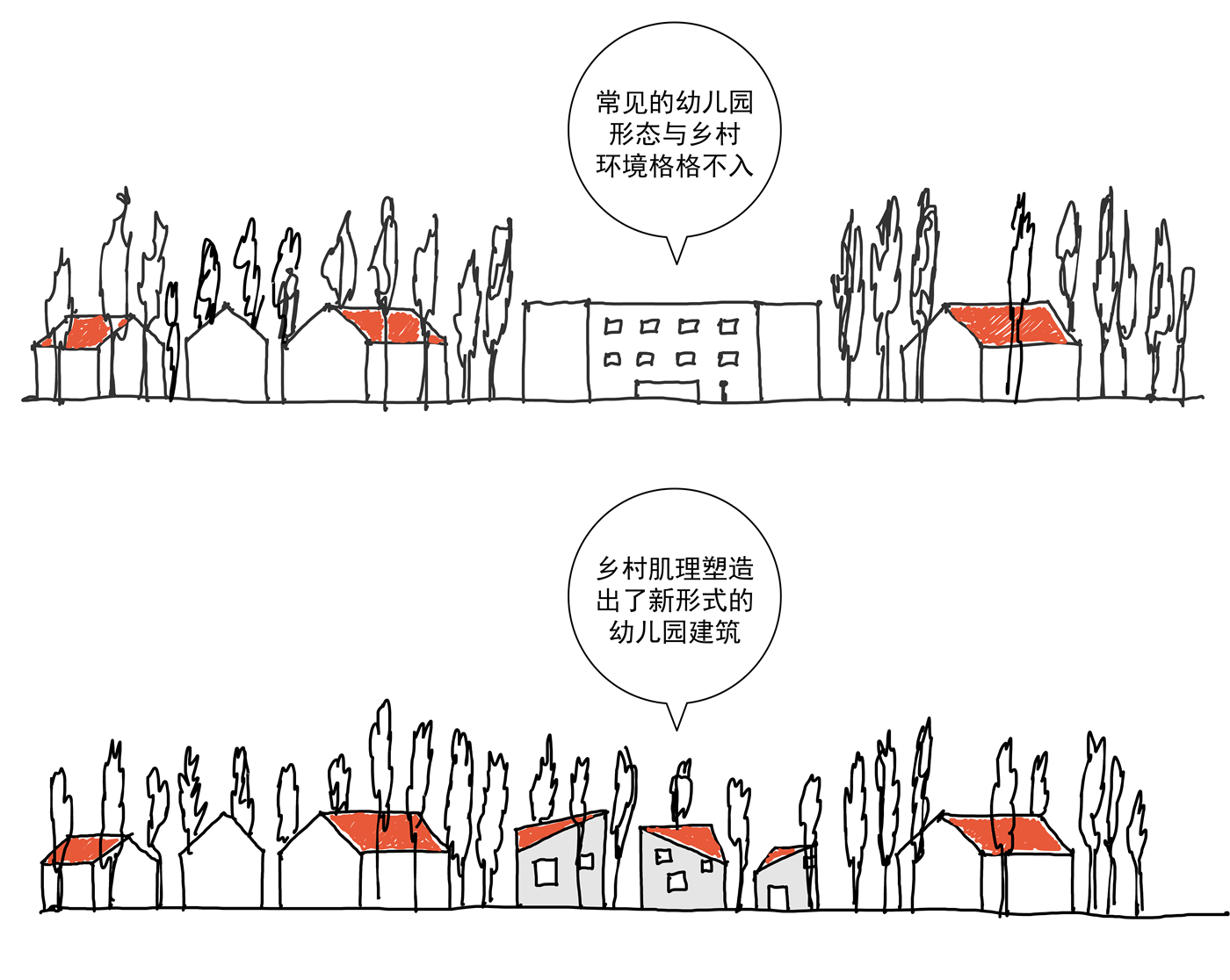
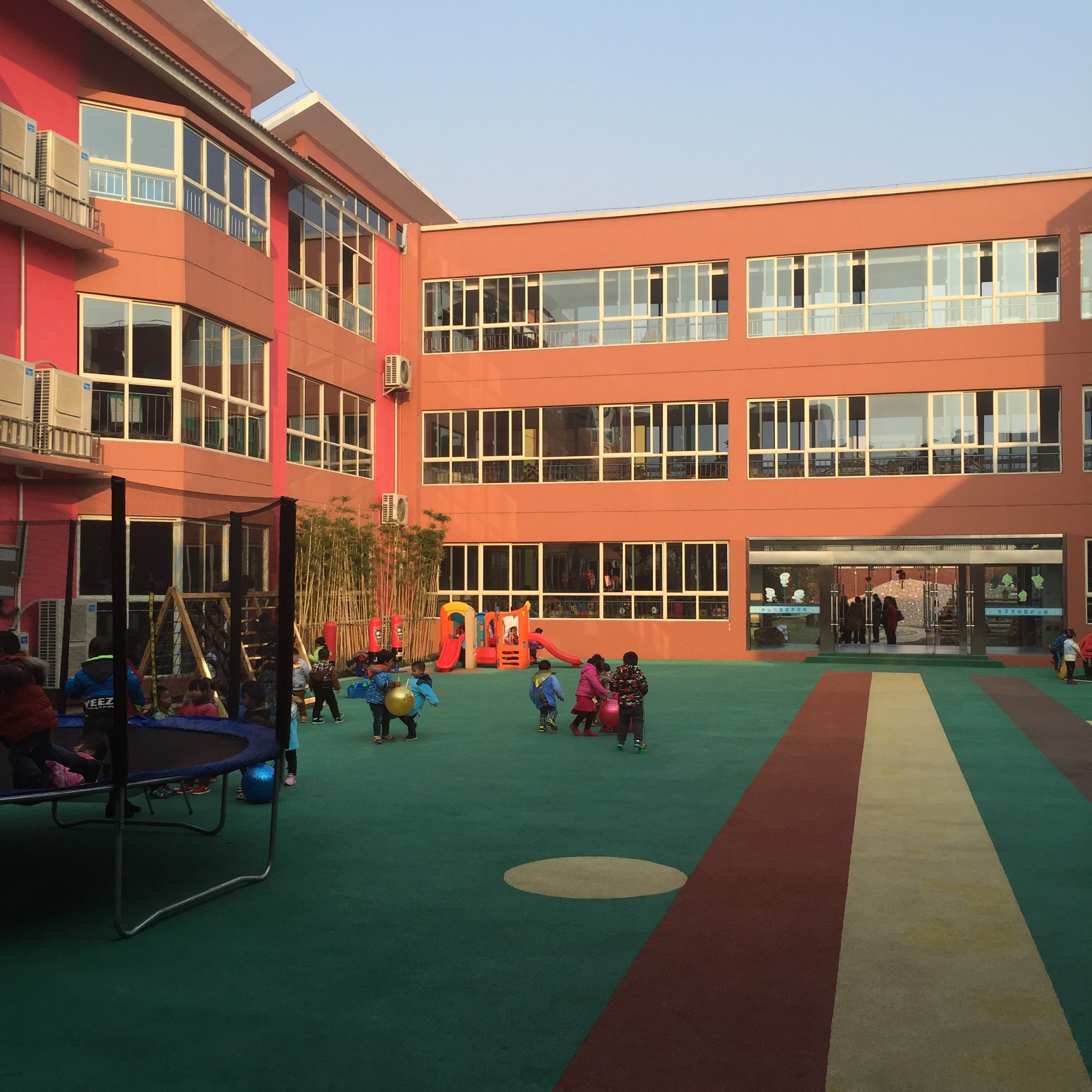


探索之乐
二层的步道不仅连通着各个区域,也是孩子们的活动平台。上到二层平台,孩子们的目光会立刻被起伏的坡屋顶吸引,有置身山谷的感觉,树冠也几乎触手可及。视角的小小转变,就能使孩子们换一个角度去观察自己周围的一切,拓展他们日常的空间体验。
In Beisha kindergarten, the second floor pathways are not just connections between areas, they are also combined together into a platform of explorations for children. Once you are up on the second floor platform your experience is suddenly overtaken by the dynamic slopes of the roofs. The endless plain suddenly feels like a mountain gorge and the treetops are within a hand’s reach. This little shift of perspective enables the children to see their surrounding in a different frame and expand their everyday spatial experience.

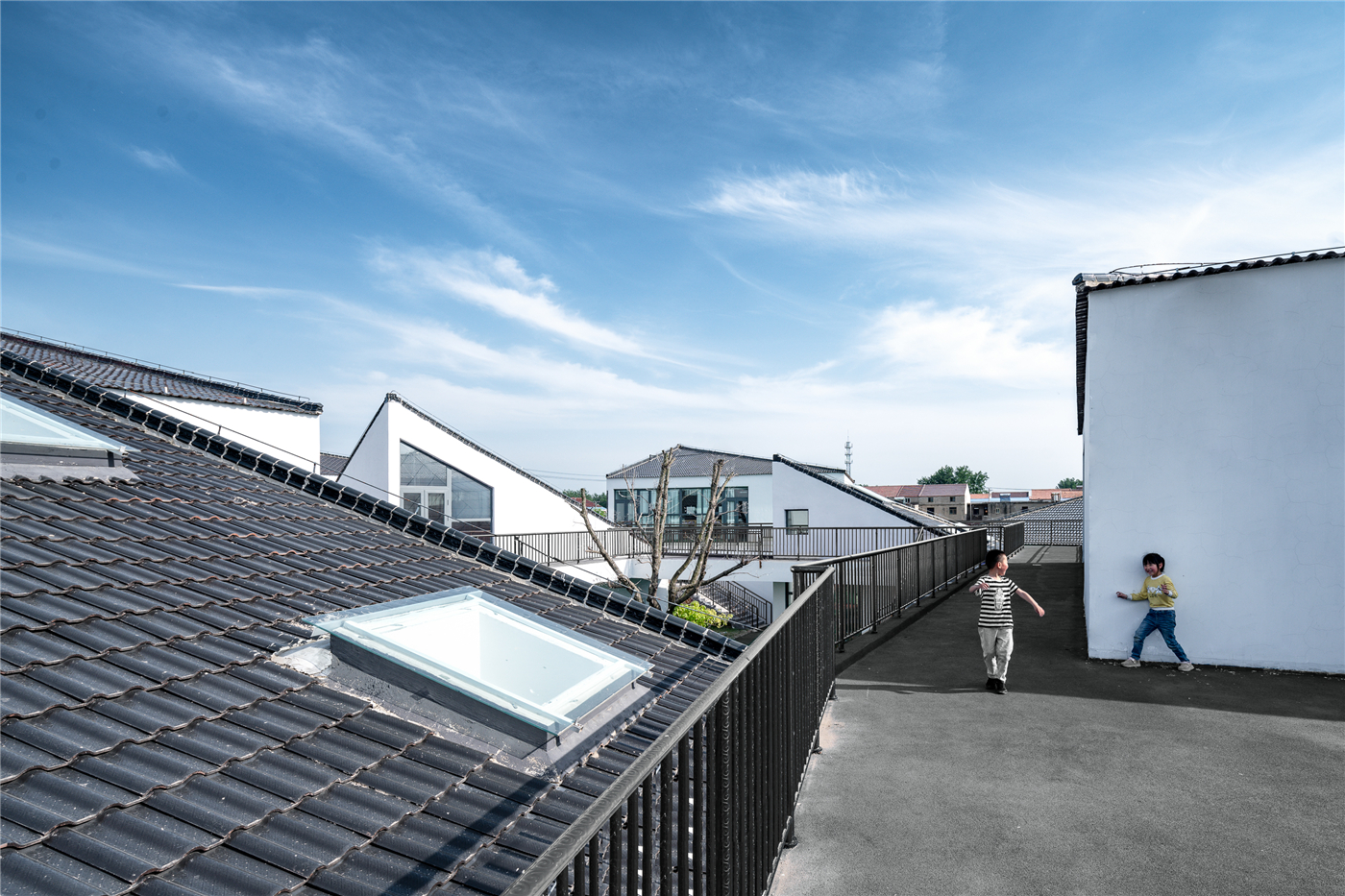
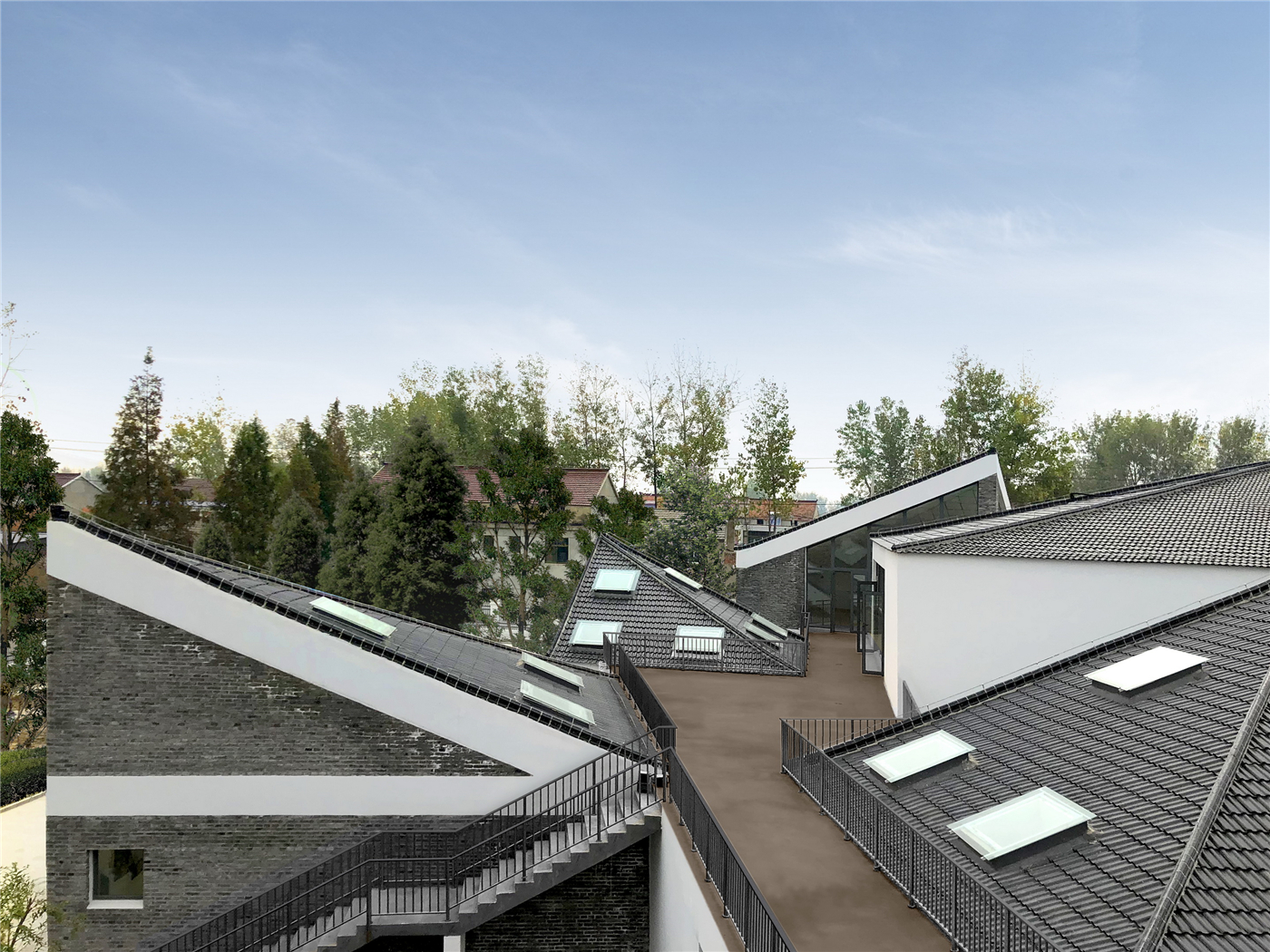
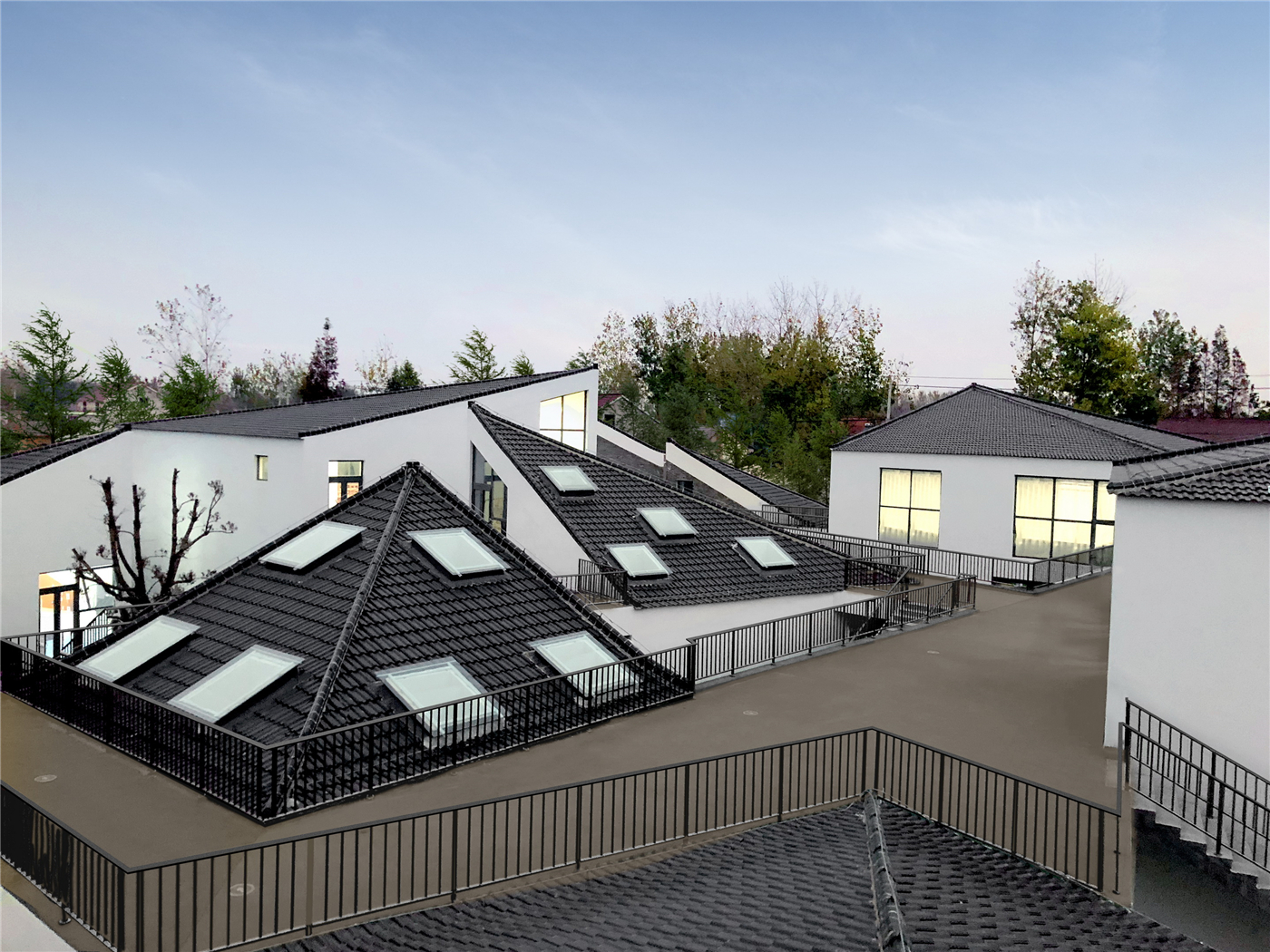
立面材料选用了本地随处可得的老青砖和白色灰泥,每栋“小屋”的面貌都不尽相同。在房屋的底层开设了多处相互对望的方窗,为每栋建筑与每处小庭院之间建立起视觉联系,移步换景,将别处的活动引入视野,形成通透、有趣的室内外关系。
The materials used for facades are locally available recycled bricks combined with white plaster, creating different faces of each “house”. The window placement on the ground floor, with several square windows of the houses facing each other, establish the visual connection between the buildings through the yards, constantly reframing the views and integrating activities and connecting inside with outside.



自2018年建成以来,这座幼儿园不仅是孩子们的乐土,亦成为村中居民喜欢的社交场所。父母或祖父母们聚集在此,在接送孩子之余,有了更多融洽的交流。
Since its completion in 2018, the kindergarten became not only a pleasure land for children but an easy gathering place of their communities. Parents and grandparents tend to chat and share more time during sending and picking up their children.


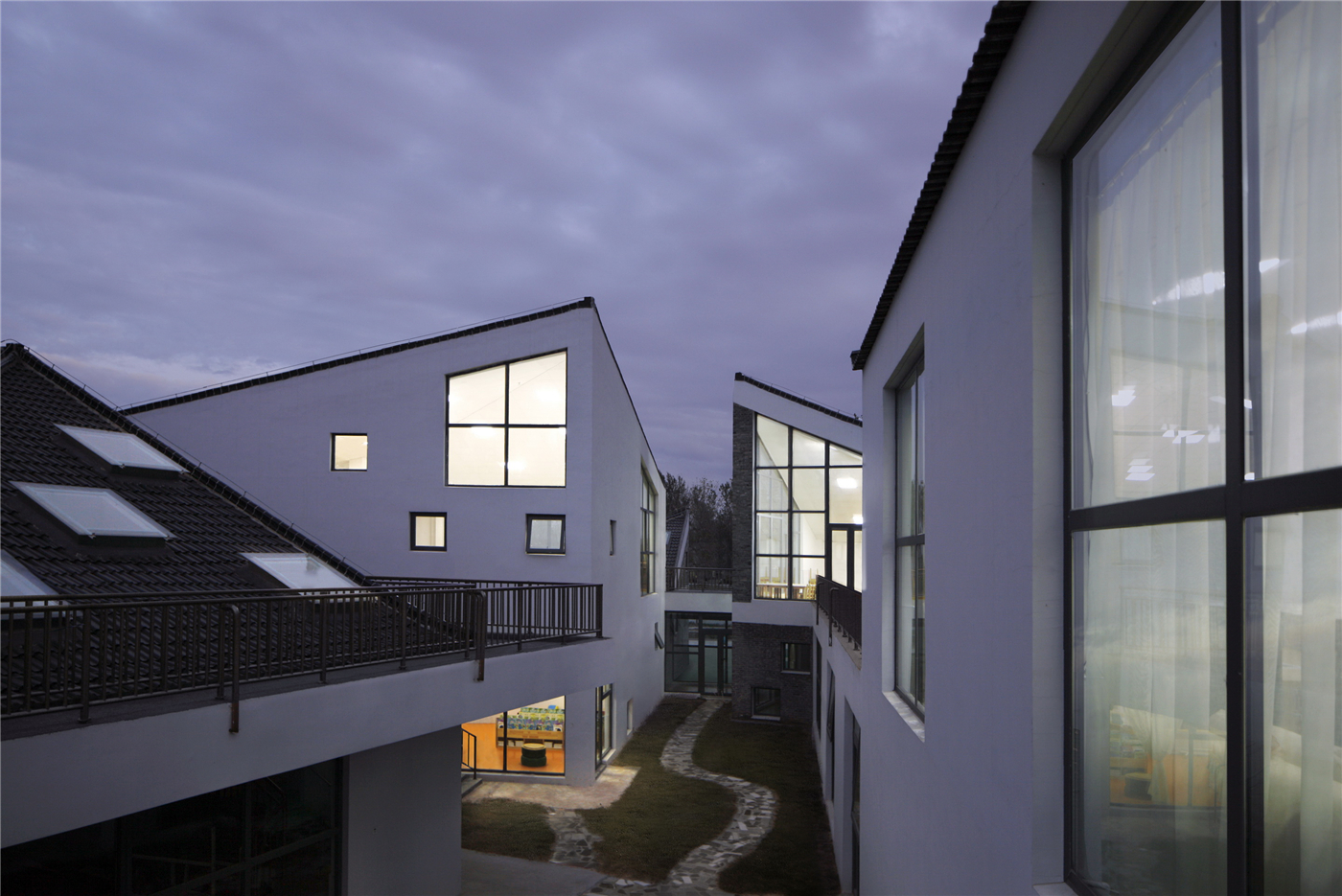
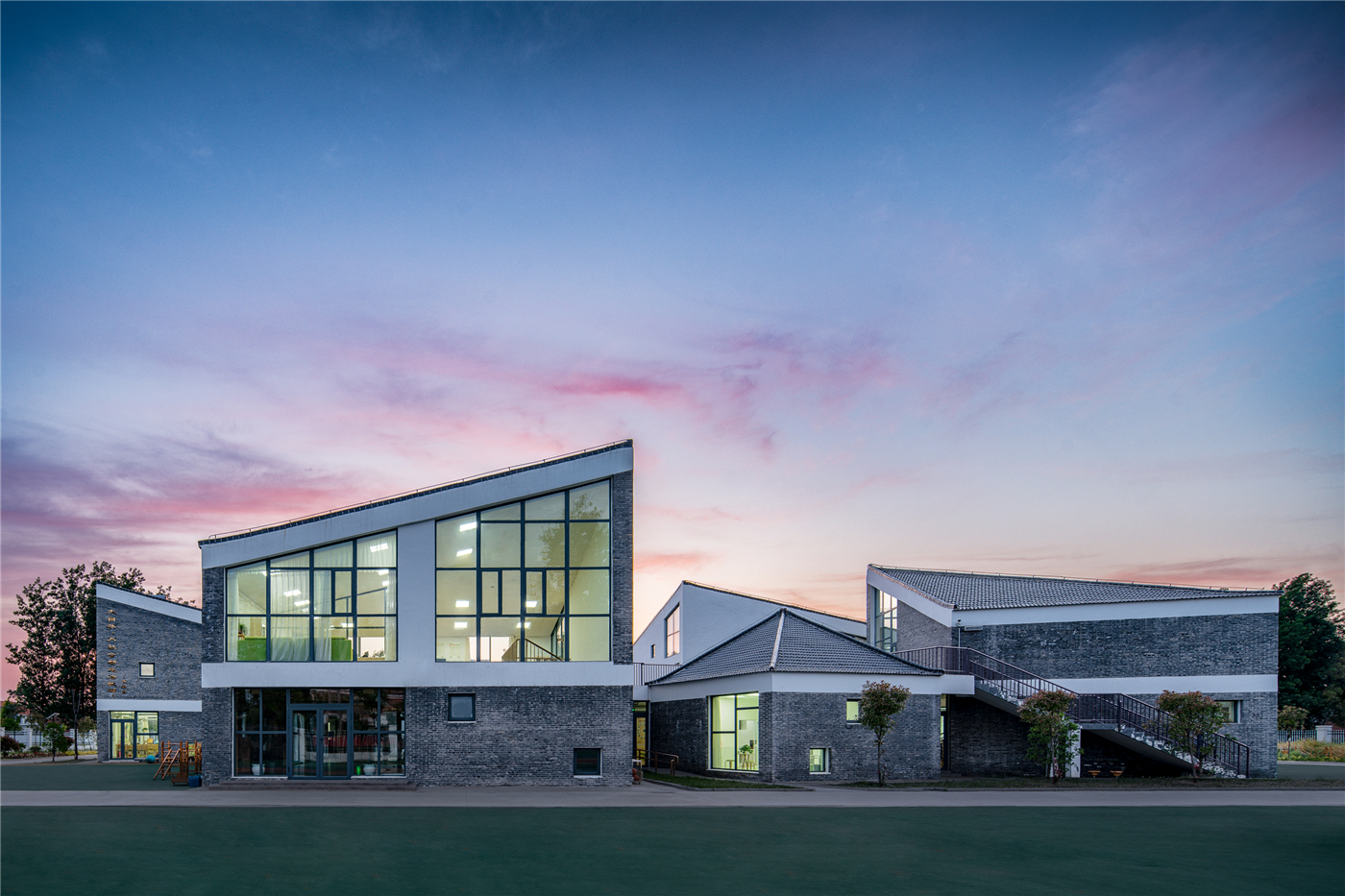
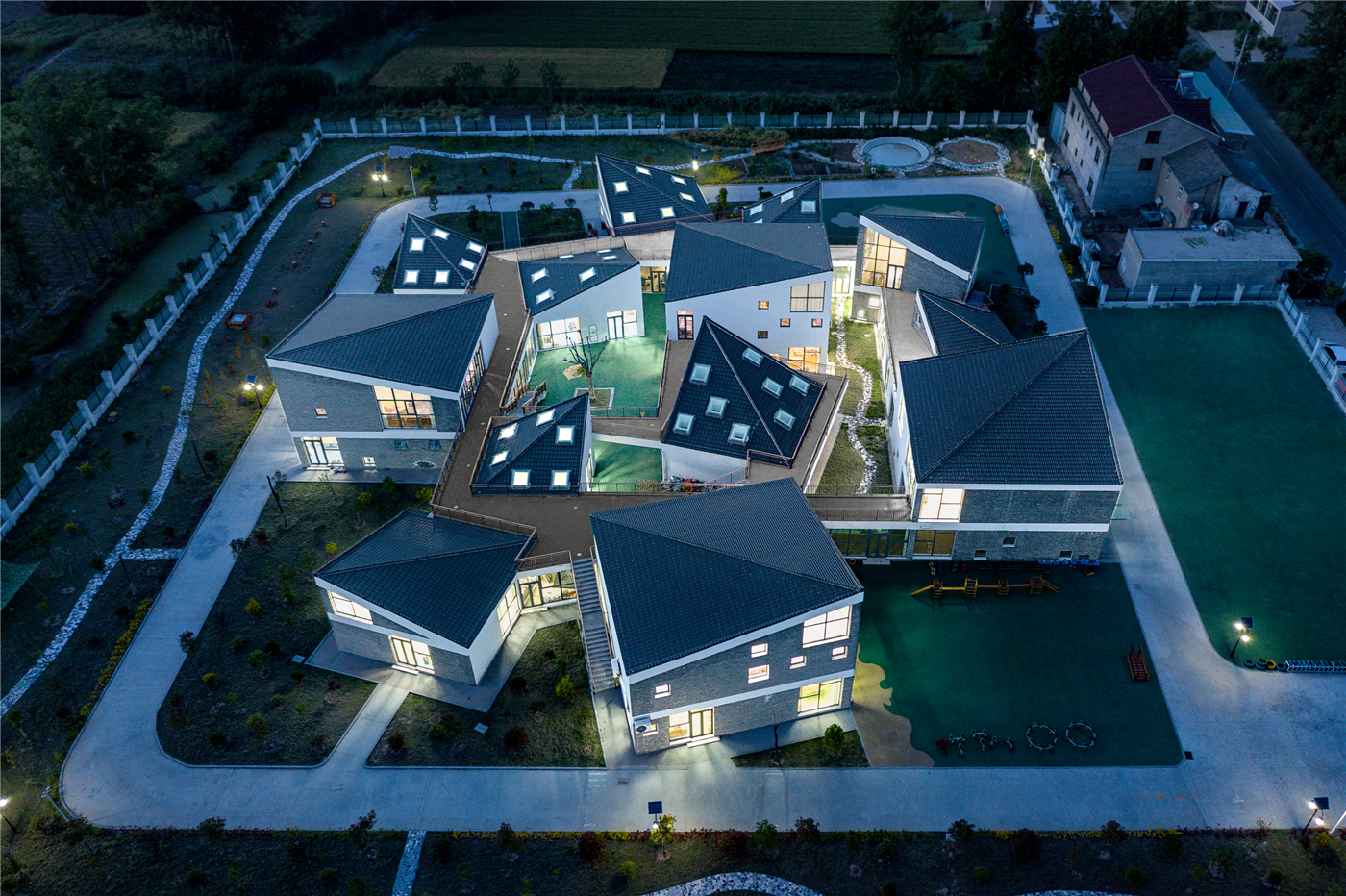

完整项目信息
地点:中国江苏阜宁县北沙村
客户:江苏省阜宁县教育局
总建筑面积:2815.4 平方米
学生人数:300人
设计周期:2015年12月—2016年9月
施工周期:2017年4月—2018年8月
完成时间:2018年8月
设计方:Crossboundaries北京
合伙人:Binke Lenhardt(蓝冰可)、董灏
设计团队:Tracey Loontjens、Alan Chou(周业伦)、Andra Ciocoiu、郝洪漪
摄影:吴清山、郝洪漪、刘敏玲
Location: Beisha Village, Fu’ning County, Jiangsu, China
Client: Education bureau of Fu’ning county, jiangsu
Total Architecture Area: 2,815.4 sqm
Number of students: 300
Design period: December 2015 - September 2016
Construction period: April 2017 - August 2018
Completed: August 2018
Architect: Crossboundaries, Beijing
Partners in charge: Binke Lenhardt, DONG Hao
Design Team: Tracey Loontjens, Alan Chou, Andra Ciocoiu, HAO Hongyi
Photographers: WU Qingshan, HAO Hongyi, Mini LIU
版权声明:本文由Crossboundaries授权有方发布,欢迎转发,禁止以有方编辑版本转载。
投稿邮箱:media@archiposition.com
上一篇:雪季朝圣卒姆托
下一篇:里卡多·波菲:60年的狂野想象